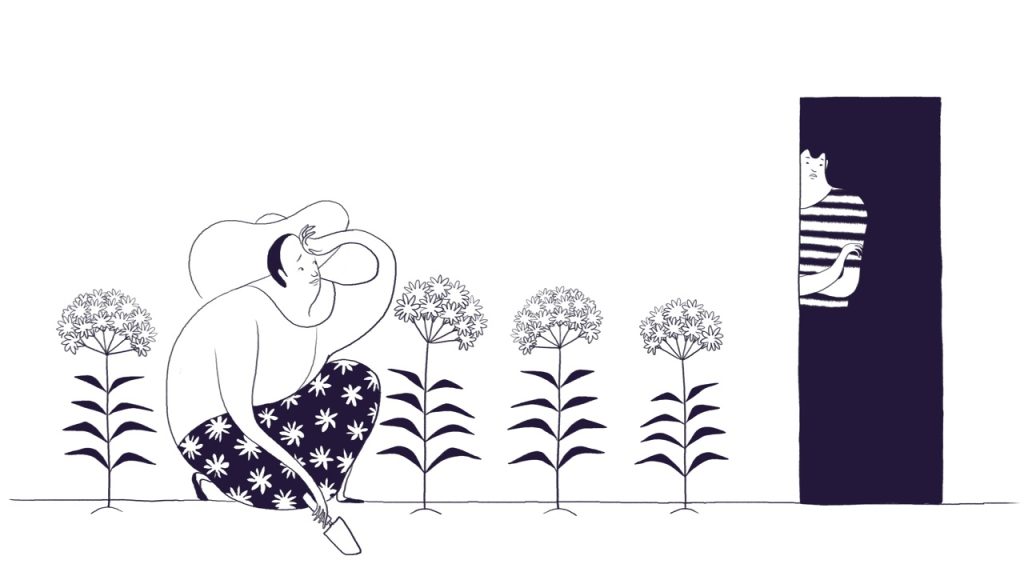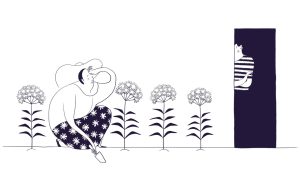They’re So Enmeshed – Can I Possibly Help?

An Allies in Recovery member recently wrote in about a complicated and frustrating situation with her elderly sister and her addicted nephew:
She describes the relationship between her sister and nephew as “enmeshed and codependent,” and is constantly on edge, expecting a “call” with bad news. She wonders how she can help them as she is too exhausted and they have no friends to join in an intervention. Yet they desperately need one. This has been going on for a long time and past efforts have failed. She worries most about her nephew who has never really had a normal life. He also suffers from severe depression in addition to his addiction.
This post originally appeared on our Member Site blog, where experts respond to members’ questions and concerns. To learn more about membership, see our Membership Benefits page.

Dominique Simon-Levine responds to this concerned sister and aunt below.
How tough to be watching a part of your family so tangled up and probably very unhappy.
“Enmeshed” is a good word to describe the situation between your sister and her son. Enmeshed describes a pattern, years in the making, when a family member fixes and protects and tries to control the actions of a loved one who’s abusing substances.
The scenario goes something like this: the loved one takes advantage of parent’s worry and love and uses this to maintain the drug use and protection afforded by the parent. The parent feels that by having the loved one close and under their protection, she is providing perhaps life-saving help. She is also better able to control her own feelings of worry. In some cases, and this may be so with your sister, there is an element of family and companionship that needs to be maintained at all cost.
Boundaries are nonexistent
The parent steps in constantly. They believe their loved one needs help with such things as basic needs – (housing or getting enough to eat), issues of safety related to the drug use, or propping them up when the depression is bad.
The loved one can get angry towards the parent for not doing more, for not taking away even more of the hurt, consistently and quickly. In this way, they make the parent responsible for their problems and look to them for the solutions. Mom gets obsessed over the son and the son deflects problems and solutions onto the mom.
The question is what you can do as a family member, looking in on this from the outside. A couple ideas:
1—Give your sister a membership to Allies in Recovery as a gift. Offer to go through the Modules and the Key Observation exercises on this site together, at her pace.
2—There are many layers to the problem. The relationship between your sister and her son will likely need good family therapy to repair. Can you locate a good therapist that takes your sister’s insurance and has openings? You give your sister this information… “if and when you and your son are ready, here is the name of a wonderful family counselor ….”
3—Similarly, your sister may elect to get some counseling for herself. The family counselor may see her individually to start. Perhaps the hook is the “family work described in #2.”
4—Regardless of the number of times your nephew has been to treatment, treatment is still the best solution going forward. You can give the family a list of treatment options. Our member site provides a useful methodology for finding treatment.
For 1 and 4, you may have to convince your sister that it is critical to focus on the substance problem first. Resolve the substance abuse and all the rest of this can unlock.
And please look after yourself as well
Without oversubscribing yourself emotionally, you can do the research and provide solid resources to your sister. You can offer your support for help with treatment where you can.
Reading your words I am also concerned about your own exhaustion. While it is possible for you, alone, to start applying a strategy to help your nephew, it is equally critical for you to take care of yourself. Reducing the worry, and increasing kind acts towards yourself will help with the exhaustion, and with your strategy! Take some time to browse through the Sanctuary, Allies in Recovery’s self-care resource available to members, or watch Module 7 on difficult emotions (see an excerpt here).
A membership at Allies in Recovery brings you into contact with experts in the fields of recovery and treatment for drug and alcohol issues. Our learning platform introduces you to CRAFT and guides you through the best techniques for unblocking the situation. Together we will move your loved one towards recovery. Learn more here.
